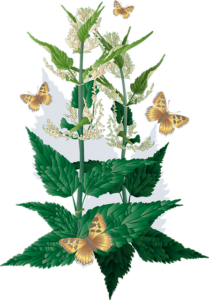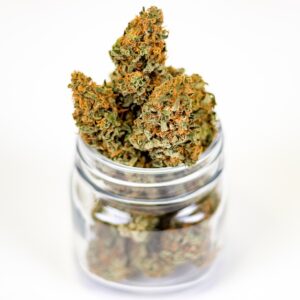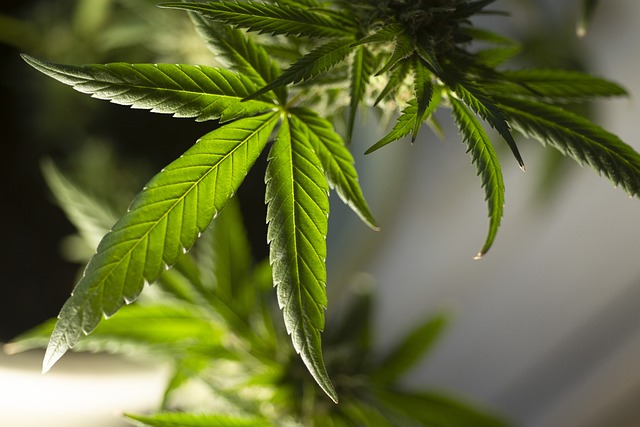
The article provides an extensive overview of THCA flower, a non-psychoactive cannabinoid from Cannabis sativa. It emphasizes the critical role of THCA flower lab reports in ensuring product purity, safety, and identifying potential health risks due to contaminants or adulterants. Clinical studies suggest that THCA may cause mild gastrointestinal issues, dry mouth, and drowsiness, and it could interact negatively with existing health conditions or other medications. The article advises users, particularly those with pre-existing health issues, to consult healthcare professionals before consuming THCA flower. It highlights the anti-inflammatory, neuroprotective, and anti-nausea properties of THCA, as well as its non-psychoactive nature, which makes it a potential therapeutic option. The importance of starting with a low dose and understanding side effects based on personal body chemistry is underscored. Lab reports are essential for assessing the precise cannabinoid profile of THCA flower, ensuring users can predict and manage potential side effects effectively. Long-term use considerations include cognitive changes, increased tolerance, and lung health concerns, necessitating regular medical evaluations alongside consistent reliance on THCA flower lab reports for safe consumption practices.
Exploring the nuanced effects of THCA flower, an unrefined form of cannabis, merits a detailed examination. This article delves into the scientific composition and potential side effects, as indicated in THCA flower lab reports. Understanding the chemical profile and associated impacts is crucial for informed consumption. We’ll dissect common reactions experienced by users, emphasizing the significance of precise dosage, individual tolerance, and the imperative role of comprehensive lab testing. Additionally, we’ll consider the long-term implications for regular users to ensure safe and responsible use of THCA flower. Join us as we navigate this complex topic with scientific rigor and clarity.
- Unraveling THCA Flower Lab Reports: A Comprehensive Analysis of Potential Side Effects
- The Science Behind THCA Flower: Understanding Its Chemical Makeup and Effects
- Common Side Effects Associated with THCA Flower Consumption: What Users Should Know
- Navigating Safety: Dosage, Tolerance, and the Importance of Lab Testing for THCA Flower
- Long-Term Implications and Considerations for Regular Users of THCA Flower
Unraveling THCA Flower Lab Reports: A Comprehensive Analysis of Potential Side Effects
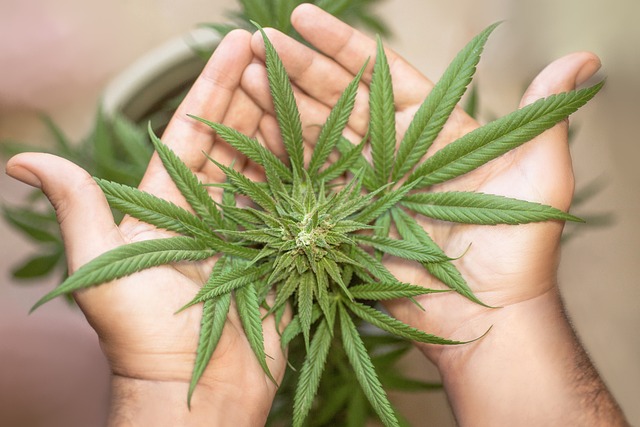
Unraveling THCA Flower Lab Reports provides a critical examination of the potential side effects associated with the use of THCA flower, a non-psychoactive cannabinoid found in the Cannabis sativa plant. The scientific community has increasingly focused on THCA due to its promising therapeutic properties; however, understanding its safety profile is paramount. Laboratory reports play a pivotal role in this analysis by offering detailed information on the chemical composition and purity of THCA products. These reports are instrumental in identifying any potential contaminants or adulterants that could lead to adverse reactions. In the context of side effects, it’s crucial to scrutinize these lab analyses to ascertain the safety and efficacy of THCA flower consumption. Adverse reactions reported in clinical studies and user experiences include mild to moderate gastrointestinal issues such as nausea and diarrhea, dry mouth, and occasional drowsiness. Additionally, individuals with pre-existing health conditions or those taking other medications should approach THCA use with caution, as interactions can potentially exacerbate their conditions. The comprehensive analysis of THCA flower lab reports underscores the importance of responsible consumption and the need for further research to fully understand its side effect profile. Users are encouraged to consult with healthcare professionals before incorporating THCA flower into their wellness routines, ensuring they have access to accurate and up-to-date lab reports.
The Science Behind THCA Flower: Understanding Its Chemical Makeup and Effects

Delta-9-tetrahydrocannabinolic acid (THCA) is the non-psychoactive precursor to the well-known cannabinoid delta-9-tetrahydrocannabinol (THC). Found abundantly in raw cannabis plants, THCA flower undergoes decarboxylation—a process of heating which converts it into THC—when exposed to heat, such as during smoking or vaporizing. Lab reports on THCA flower play a pivotal role in elucidating its chemical makeup and potential effects, providing insightful data that inform users about its cannabinoid profile, including the presence of THCA, THC, cannabidiol (CBD), and other minor cannabinoids and terpenes.
The scientific community has conducted extensive research on THCA’s interactions with the human body, particularly focusing on its binding affinity to the endocannabinoid system’s receptors. Studies have indicated that THCA may possess anti-inflammatory, neuroprotective, and anti-nausea properties, although more research is needed to fully understand its effects. Unlike its decarboxylated form, THCA does not produce psychoactive effects, making it an attractive option for those seeking the therapeutic benefits of cannabis without the high. Lab reports confirm the presence of THCA in various strains and provide a comprehensive analysis of its potency, allowing consumers to make informed decisions based on scientifically verifiable data. These reports are essential for medical professionals and researchers to assess the safety and efficacy of THCA flower as a potential therapeutic agent.
Common Side Effects Associated with THCA Flower Consumption: What Users Should Know
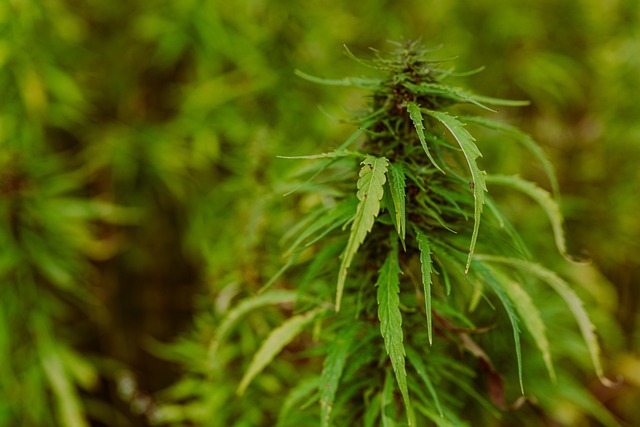
When exploring the effects of THCA flower, a precursor to THC found in cannabis, understanding its side effects is crucial for safe consumption. THCA flower, which is often the subject of lab reports detailing its cannabinoid profile and potential benefits, can induce a range of effects when consumed. Common side effects associated with THCA flower consumption include:
Euphoria and relaxation are often reported by users, yet some may experience mild adverse effects such as dizziness, dry mouth, or reddening of the eyes. These are typically minor and subside as the body adjusts to the cannabinoid. It’s important for users to be aware that individual sensitivities can influence these side effects. For instance, THCA’s interaction with the endocannabinoid system may vary from person to person, affecting how one feels after consumption. Therefore, it is advisable for new users to start with a low dose and gradually increase as needed while monitoring their response.
Lab reports are essential tools for consumers to verify the purity and potency of THCA flower, ensuring that they are aware of what they are ingesting. These reports provide detailed information about the cannabinoid levels, including the presence of THCA, which can help users predict potential side effects based on their individual tolerance and the specific batch of flower they are using. Users should always refer to these lab reports and consider consulting with a healthcare professional before incorporating THCA flower into their wellness routine, especially if they have underlying health conditions or are taking other medications.
Navigating Safety: Dosage, Tolerance, and the Importance of Lab Testing for THCA Flower
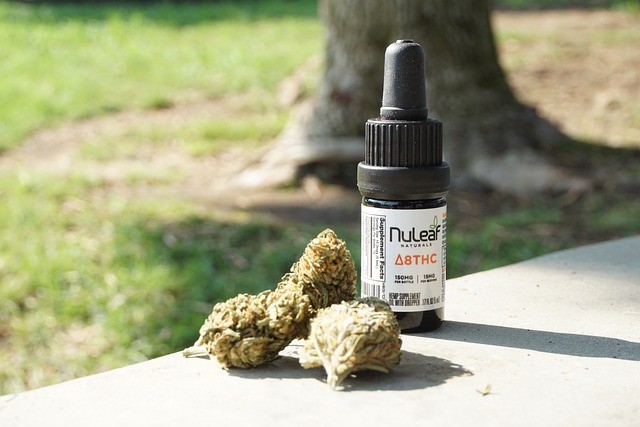
When incorporating THCA flower into one’s wellness regimen, safety is paramount. Understanding dosage and individual tolerance plays a crucial role in ensuring a positive experience. The potency of THCA flower can vary significantly, necessitating a careful approach to dosing. It’s advisable to start with a low dose to gauge effects before gradually increasing as needed. Personal tolerance levels can differ widely among individuals; factors such as body chemistry and prior experience with cannabinoids influence these thresholds.
The importance of lab testing for THCA flower cannot be overstated when it comes to safety and efficacy. Reputable dispensaries provide THCA flower lab reports, which detail the cannabinoid profile, including the concentration of THCA, THC, CBD, and other cannabinoids present. These reports also screen for contaminants like pesticides, heavy metals, and residual solvents. Armed with this information, consumers can make informed decisions about product safety and suitability for their needs. Lab-verified THCA flower ensures peace of mind, allowing users to experience the potential benefits without undue risk.
Long-Term Implications and Considerations for Regular Users of THCA Flower

Regular users of THCA flower should be well-versed in the long-term implications and considerations that come with its consistent use. THCA, or Tetrahydrocannabinolic acid, is the precursor to THC, the psychoactive component found in cannabis. Lab reports for THCA flower are crucial for understanding the exact composition of the product, including its potency and safety profiles. These reports provide users with essential information on the concentration of THCA, other cannabinoids, and potential contaminants.
Long-term use of THCA flower may lead to a range of effects that include both psychological and physiological changes. Cognitive impacts such as memory impairment or a decrease in attention have been reported with long-term heavy use, particularly among young adults whose brains are still developing. Moreover, users may experience tolerance development over time, necessitating higher doses for the desired effect. On the physiological front, there are potential risks associated with lung health due to inhalation; regular users should be aware of the signs of respiratory issues and monitor their health accordingly. It is also important to note that THCA’s effects can vary widely based on individual biochemistry and the specific strain of the flower. As such, users should consistently consult lab reports to ensure they are consuming a product within safe parameters for their particular needs and circumstances. Engaging in regular medical evaluations is advisable to monitor any adverse effects and adjust usage as necessary, ensuring long-term well-being.
In conclusion, the exploration into THCA flower lab reports reveals a complex interplay between its chemical composition and potential side effects. Understanding the science behind THCA flower is pivotal for users to make informed decisions regarding consumption. It’s evident that while THCA flower may offer certain benefits, it’s crucial to consider common side effects and how they can vary among individuals. Navigating safety involves careful dosage and attention to personal tolerance, with lab testing emerging as a non-negotiable step in ensuring product quality and user well-being. For those considering regular use, the long-term implications warrant thoughtful consideration, emphasizing the importance of responsible consumption and ongoing research. Prospective users are encouraged to consult with healthcare professionals and refer to comprehensive THCA flower lab reports to fully understand the substance they are engaging with.
